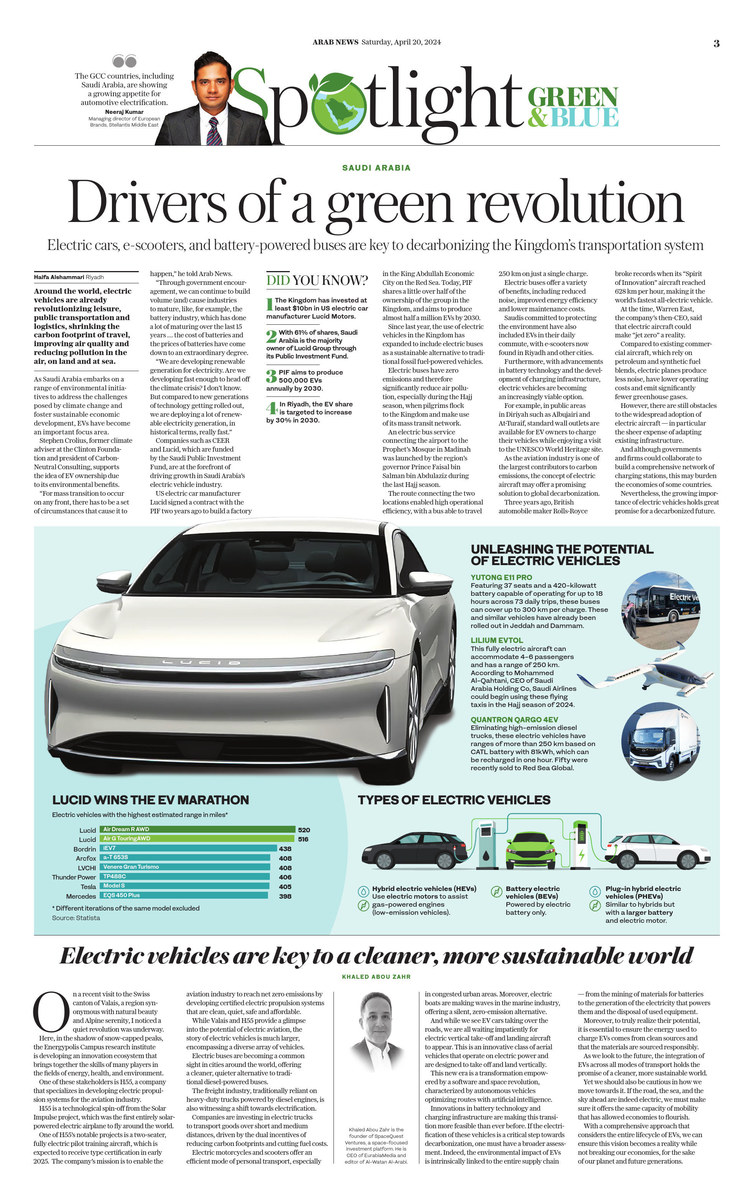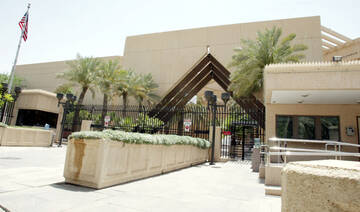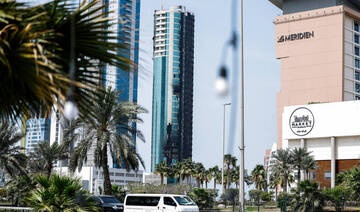RIYADH: Around the world, electric vehicles are already revolutionizing leisure, public transportation and logistics, shrinking the carbon footprint of travel, improving air quality and reducing pollution in the air, on land and in the sea.
As Saudi Arabia embarks on a range of environmental initiatives designed to address the challenges posed by climate change and foster sustainable economic development, EVs have become an important focus area.
The shift from traditional combustion engine vehicles to new electric models has accelerated worldwide as companies and consumers opt for greener modes of transport. Saudi Arabia is no exception.

Saudia, the Kingdom's national flag carrier, has signed an arrangement to acquire 100 electric-powered jets from Lilium, developer of the first all-electric vertical take-off and landing (“eVTOL”) jet. (Supplied)
The transition from regular cars to electric vehicles in the Kingdom is flourishing. The EV trend has gone beyond personal vehicle ownership, with the proliferation of everything from e-scooters to electric buses.
There are even discussions around whether EV technology will soon be applied to aircraft and perhaps space travel.
Stephen Crolius, former climate adviser at the Clinton Foundation and current president of Carbon-Neutral Consulting, supports the idea of EV ownership due to its environmental benefits.
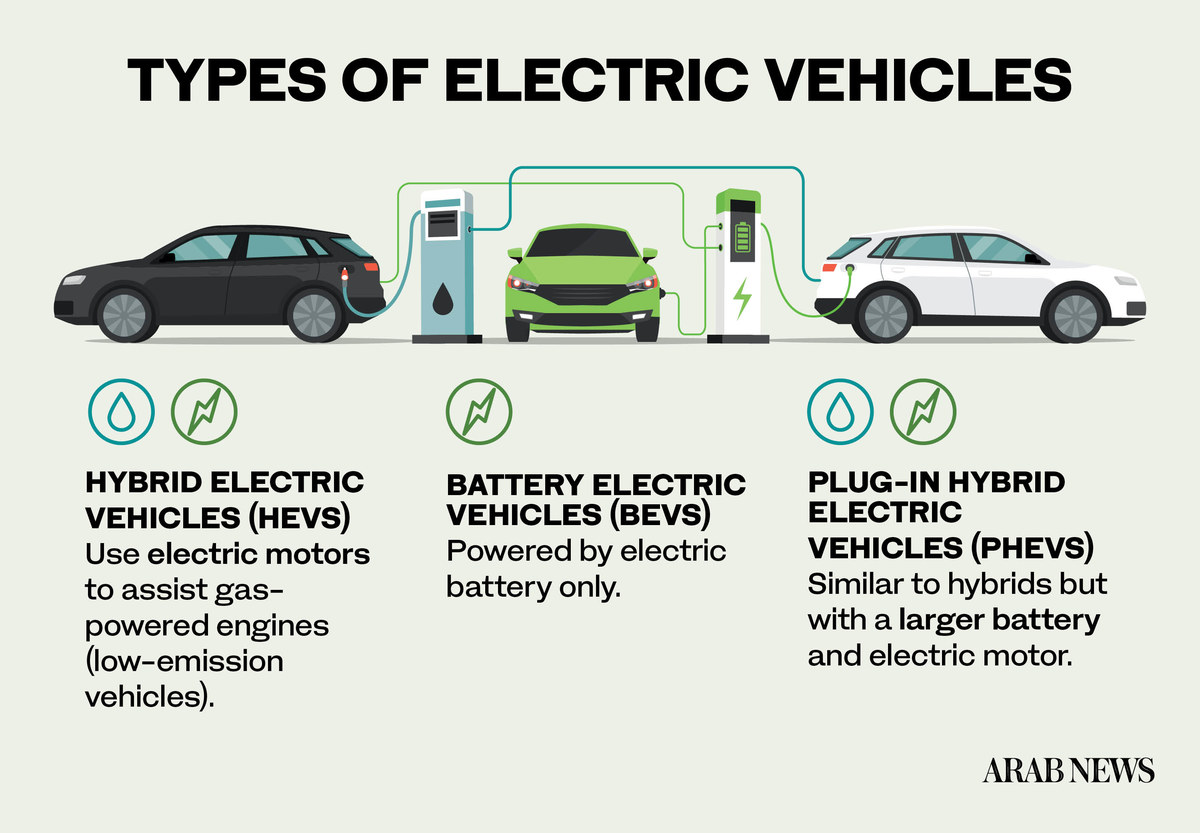
Although it might still be a challenge to educate the public in some societies about the benefits of transitioning to EVs, Crolius says the advantages outweigh the disadvantages.
“For mass transition to occur on any front, there has to be a set of circumstances that cause it to happen,” he told Arab News.
“Through government encouragement, we can continue to build volume (and) cause industries to mature, like, for example, the battery industry, which has done a lot of maturing over the last 15 years … the cost of batteries and the prices of batteries have come down to an extraordinary degree.
Opinion
This section contains relevant reference points, placed in (Opinion field)
“We are developing renewable generation for electricity. Are we developing fast enough to head off the climate crisis? I don’t know. But compared to new generations of technology getting rolled out, we are deploying a lot of renewable electricity generation, in historical terms, really fast.”
Companies such as CEER and Lucid, which are heavily funded by the Saudi Public Investment Fund, are at the forefront of driving growth in Saudi Arabia’s electric vehicle industry.
US electric car manufacturer Lucid signed a contract with the PIF two years ago to build a factory in the King Abdullah Economic City on the Red Sea. Today, PIF shares a little over half of the ownership of the group in the Kingdom, and aims to produce almost half a million EVs by 2030.
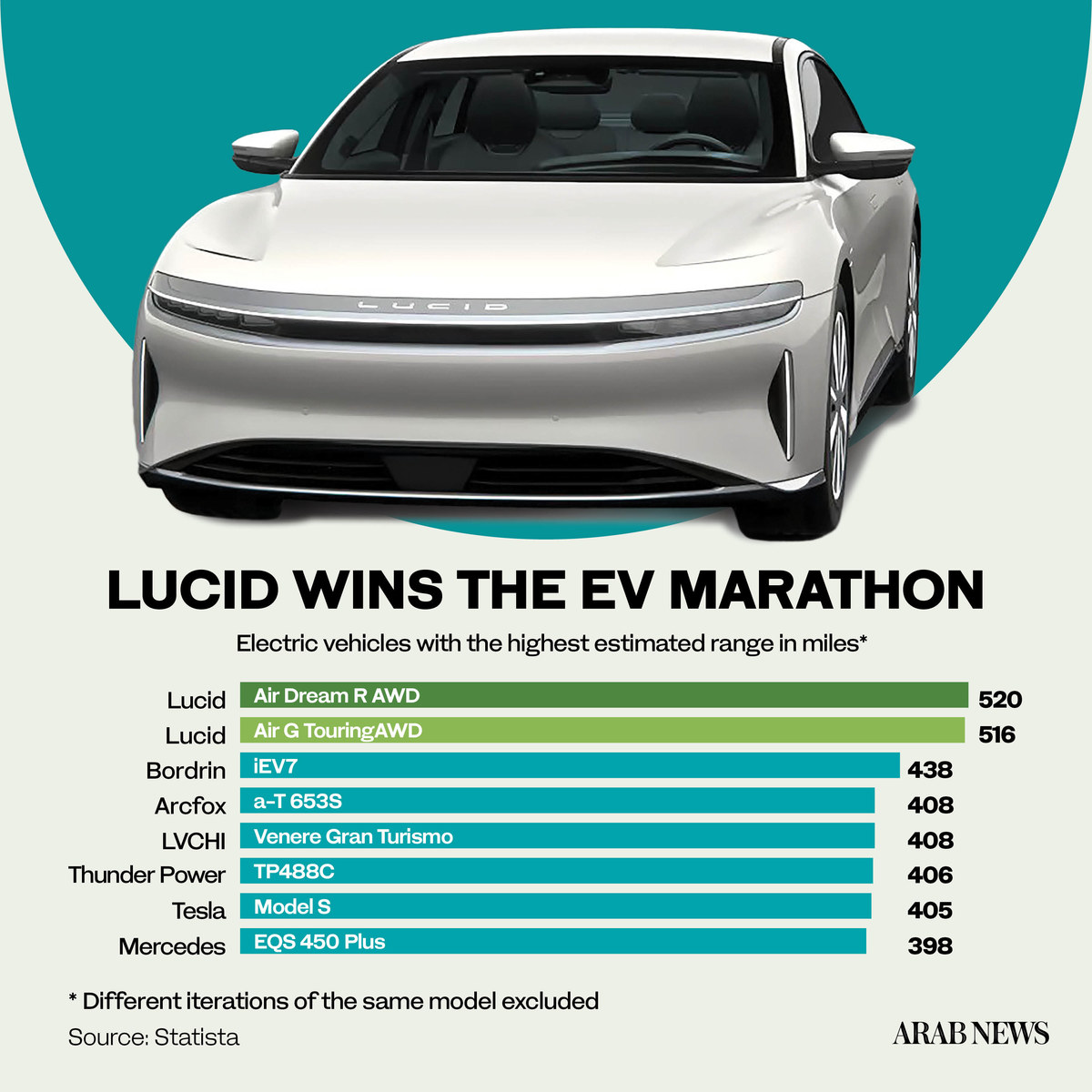
Since last year, the use of electric vehicles in the Kingdom has expanded to include electric buses as a sustainable alternative to traditional fossil fuel-powered vehicles.
Electric buses have zero emissions and therefore significantly reduce air pollution and greenhouse gases in urban areas, especially during the Hajj season, when pilgrims flock to the Kingdom and make use of its mass transit network.
An electric bus service connecting the airport to the Prophet’s Mosque in Madinah was launched by the region’s governor Prince Faisal bin Salman bin Abdulaziz during the last Hajj season.
DID YOUKNOW
• The Kingdom has invested at least $10 billion in US electric car manufacturer Lucid Motors.
• With 61% of shares, Saudi Arabia is the majority owner of Lucid Group through its Public Investment Fund.
• PIF aims to produce 500,000 EVs annually by 2030.
• In Riyadh, the EV share is targeted to increase by 30% in 2030.
The route connecting the two locations enabled high operational efficiency, with a bus able to travel 250 km on just a single charge.
Electric buses offer a variety of benefits, including reduced noise, improved energy efficiency and lower maintenance costs. In addition, they have a smaller carbon footprint, which is a crucial step toward sustainability.
Saudis committed to protecting the environment have also included EVs in their daily commute, with e-scooters now found in Riyadh and other cities. E-scooters provide an eco-friendly solution to local transport by cutting toxic emissions and lowering noise pollution.
Offering e-scooter services in various locations in Riyadh is a clear sign of the Kingdom’s eagerness to not only set regulations and promote electric vehicles, but also lead society in adopting a positive attitude toward sustainable living.
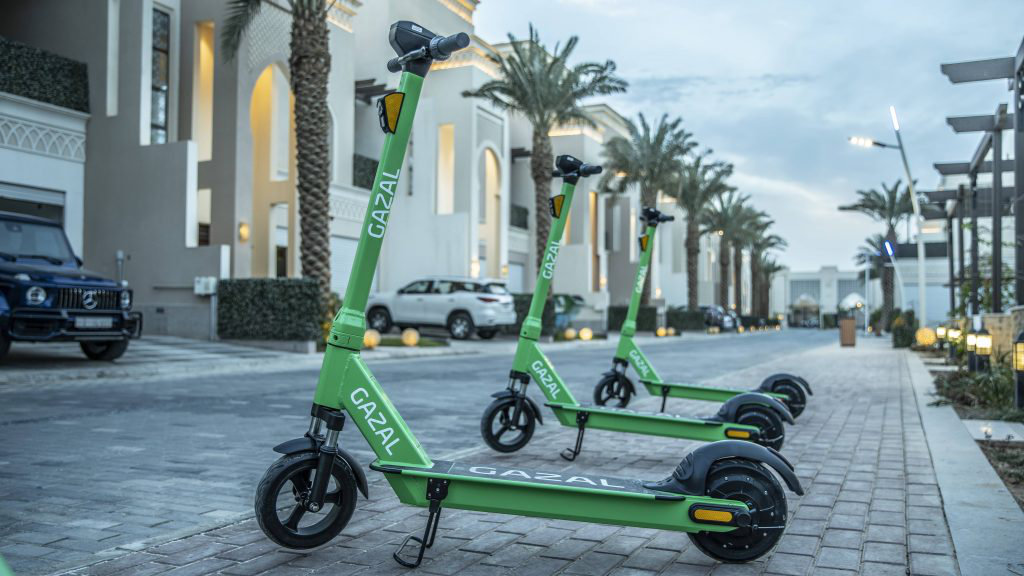
Gazal's e-scooter services have become a popular option for those traveling specially in crowded places in Riyadh. (Photo courtesy of Gazal)
Furthermore, with advancements in battery technology and the development of charging infrastructure, electric vehicles are becoming a viable option for companies aiming to decarbonize their operations.
For example, in public areas in Diriyah such as Albujairi and At-Turaif, standard wall outlets are available for EV owners to charge their vehicles while enjoying a visit to the UNESCO World Heritage site.
As the aviation industry is one of the largest contributors to carbon emissions, the concept of electric aircraft may offer a promising solution to global decarbonization.
Three years ago, British automobile maker Rolls-Royce broke records when its “Spirit of Innovation” aircraft reached 628 km per hour, making it the world’s fastest all-electric vehicle.
At the time, Warren East, the company’s then-CEO, said that electric aircraft could make “jet zero” a reality and help decarbonize all forms of transport.
Compared to existing commercial aircraft, which rely on petroleum and synthetic fuel blends, electric planes produce less noise, have lower operating costs and emit significantly fewer greenhouse gases.
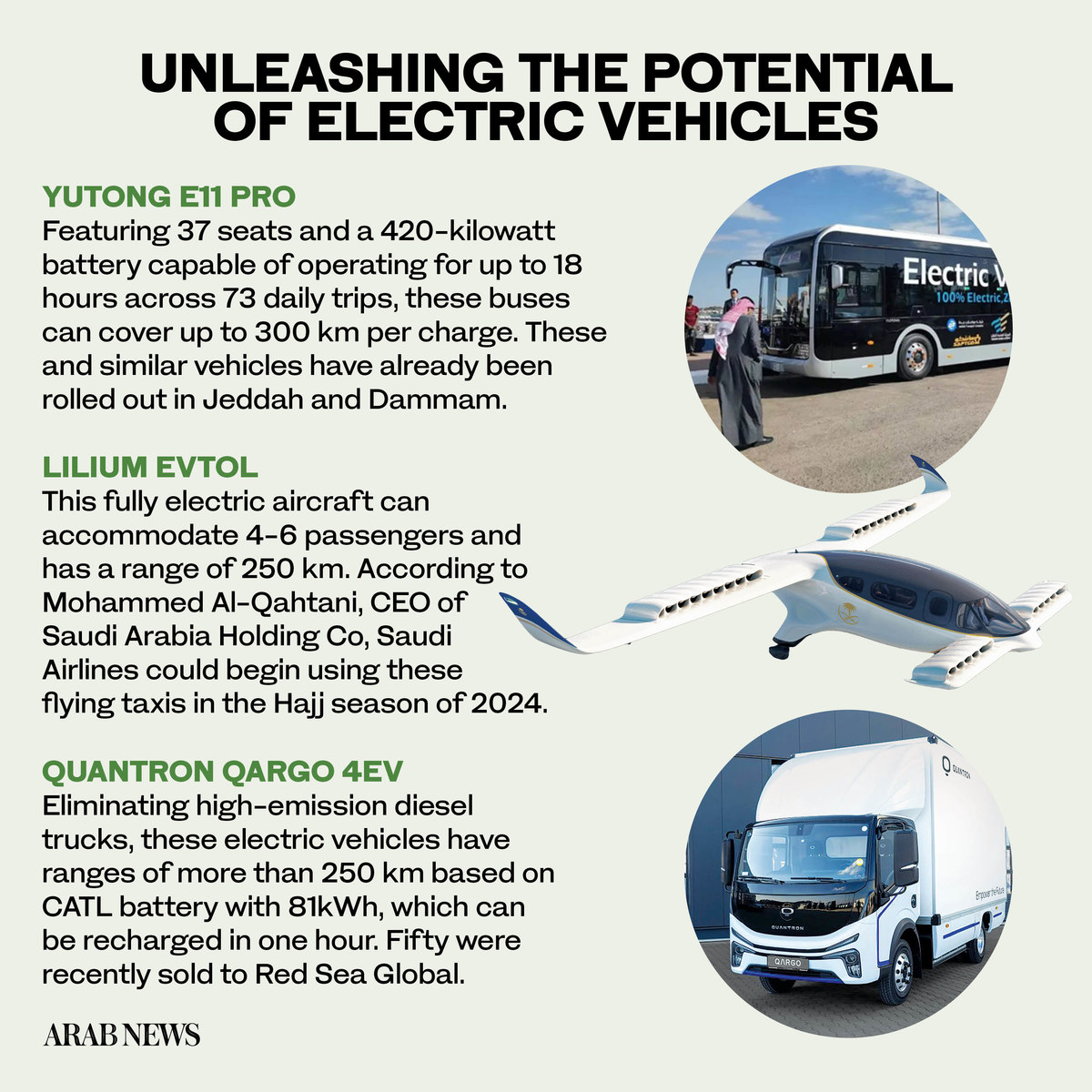
However, there are still several obstacles to the widespread adoption of electric aircraft — in particular the sheer expense of adapting the existing infrastructure needed to support their use.
Though governments and private companies worldwide could collaborate and build a comprehensive network of charging stations to meet growing demand, this may burden the economies of some countries.
Nevertheless, the growing importance of electric vehicles beyond cars, such as buses, electric scooters and airplanes, holds great promise for a decarbonized future.
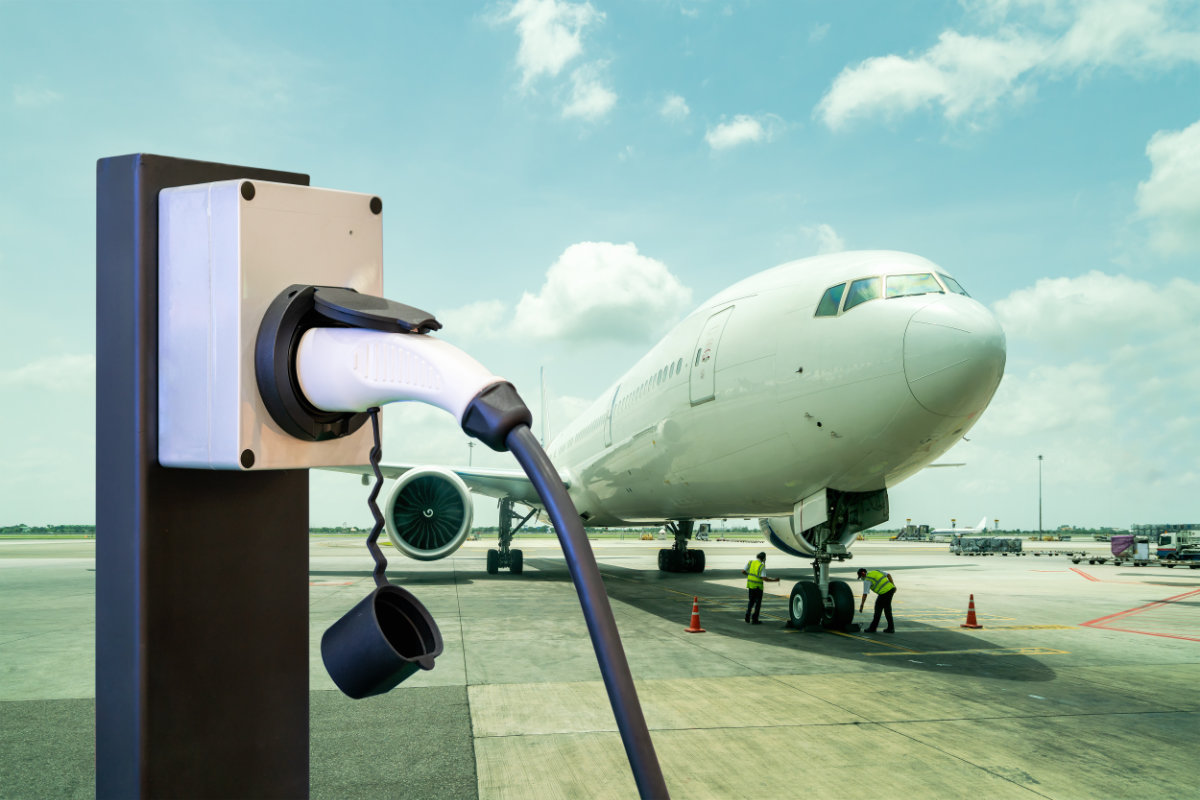
The growing importance of electric vehicles beyond cars, such as buses, electric scooters and airplanes, holds great promise for a decarbonized future. (Shutterstock photo)
Utilizing alternative sources of energy in these areas can change the carbon emissions game for the better, fight air pollution, and pave the way for sustainable transport systems in the Kingdom and around the world.
To realize the full potential of electric vehicles, however, governments and businesses will first have to address challenges such as the provision of sufficient charging infrastructure as well as range limitations in battery technology.
Through continued innovation and investment, electric vehicles will play a key role in creating a greener and more sustainable future.
